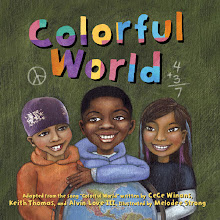In a UK study funded by the Economics and Social Research Council, research has shown that the way mothers talk to their children at a young age influences their social skills later in childhood. Specifically, those who often talked to their children about people's feelings, beliefs, wants and intentions developed better social understanding than children whose mothers did not.
The article goes on to quote Dawn Huebner, a psychologist in Exeter, New Hampshire, who sees children ages 6 to 12:
"It's essential for both mothers and fathers to give children a vocabulary of feelings...children don't always realize what their emotions are and need to have words to describe them in order to become more empathetic."
 Further support as to why our children's books on feelings are best-selling resources to help parents have conversations with their children. For birth to preschool, this sturdy little board book is a perfect introduction to the basic feelings of happy, yucky, shy, excited, mad, scared, kind, and more.
Further support as to why our children's books on feelings are best-selling resources to help parents have conversations with their children. For birth to preschool, this sturdy little board book is a perfect introduction to the basic feelings of happy, yucky, shy, excited, mad, scared, kind, and more. For ages 4 and up, the paperback version covers a full alphabet of age appropriate feelings such as brave, dramatic, generous, jealous, lonely, nervous, optimistic, proud, responsible, understood, valued, and more. Fun to read and beautifully illustrated, your kids will be able to name, claim, and share their emotions in no time.
 Thanks for all you're doing to raise such capable, kind, and resilient children. We know it's not easy, which is why we're here to support you.
Thanks for all you're doing to raise such capable, kind, and resilient children. We know it's not easy, which is why we're here to support you.




